There’s a well-developed discussion that attracted a lot of commentary on one of the industry message boards that I visit regularly on what reporting methodology, Checklists or Narratives, is better.
The discussion centers on the question of which one is more likely to provide a defense in the event that a claim eventuates from the inspection. What was interesting to me was that, while the narrative format was by far the preferred methodology, each reporting format had its supporters and both received what I thought were insightful critiques of their respective shortcomings.
In the checklist format, the inspector follows a sequential series of questions about the home and simply checks a box to indicate whether the issue was “Satisfactory”, or “Needs Repair” or was “Not Inspected”. Some forms provide a limited space for annotating the reason that an item “Needs Repair” or was “Not Inspected”.
In the narrative format, the inspector states precisely what was inspected in a narrative form and gives a brief explanation why the item’s condition was satisfactory or not.
(more…)
 Should you allow a prospect’s attorney to line out the requirement in your inspection agreement about binding arbitration or the one that claims must be filed within one year of the home inspection?
Should you allow a prospect’s attorney to line out the requirement in your inspection agreement about binding arbitration or the one that claims must be filed within one year of the home inspection?
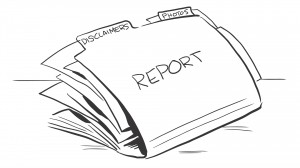 e detail – during my Law and Disorder Seminar.
e detail – during my Law and Disorder Seminar.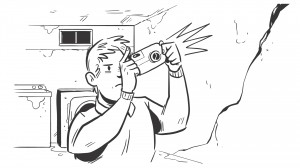
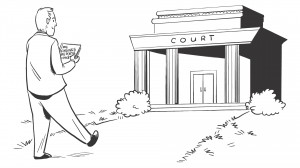 I’m starting to see a very disturbing trend developing between the home inspection industry and the real estate marketplace: non-client home sellers are bringing claims against home inspectors for the failure of their clients to follow through on the agreement of sale as a consequence of the home inspector’s findings.
I’m starting to see a very disturbing trend developing between the home inspection industry and the real estate marketplace: non-client home sellers are bringing claims against home inspectors for the failure of their clients to follow through on the agreement of sale as a consequence of the home inspector’s findings. In the discovery phase of a lawsuit, laywers ask witnesses questions under oath that are recorded by a court reporter. Believe it or not, lying is commonplace!
In the discovery phase of a lawsuit, laywers ask witnesses questions under oath that are recorded by a court reporter. Believe it or not, lying is commonplace!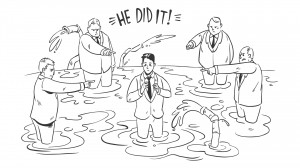 A claim is brought against you after inspecting a vacant house, and your insurance company wants you to (surprise, surprise) settle it quickly and claim responsibility. However, you didn’t do anything wrong and instead want to fight the claim, but you are afraid your insurance company will bail if you don’t agree to settle.
A claim is brought against you after inspecting a vacant house, and your insurance company wants you to (surprise, surprise) settle it quickly and claim responsibility. However, you didn’t do anything wrong and instead want to fight the claim, but you are afraid your insurance company will bail if you don’t agree to settle.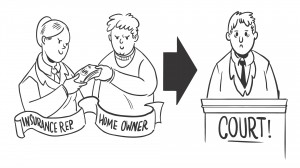 Insurance companies will sometimes pay a claim to a homeowner and THEN try to recover the financial losses from the home inspector through a process called subrogation.
Insurance companies will sometimes pay a claim to a homeowner and THEN try to recover the financial losses from the home inspector through a process called subrogation.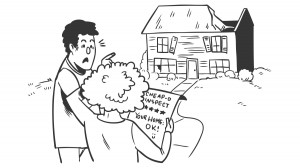 I remember the advice I received from a savvy real estate investor as I was about to purchase my first house.
I remember the advice I received from a savvy real estate investor as I was about to purchase my first house.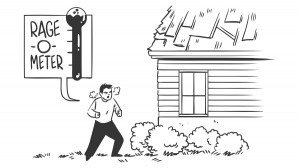 By the time a home inspector contacts me, he or she has already made exhaustive attempts to explain to an irrational client why a leak in a roof six months after it was reported as “near the end of its life expectancy” in an inspection report is not grounds for a claim against the home inspector.
By the time a home inspector contacts me, he or she has already made exhaustive attempts to explain to an irrational client why a leak in a roof six months after it was reported as “near the end of its life expectancy” in an inspection report is not grounds for a claim against the home inspector.